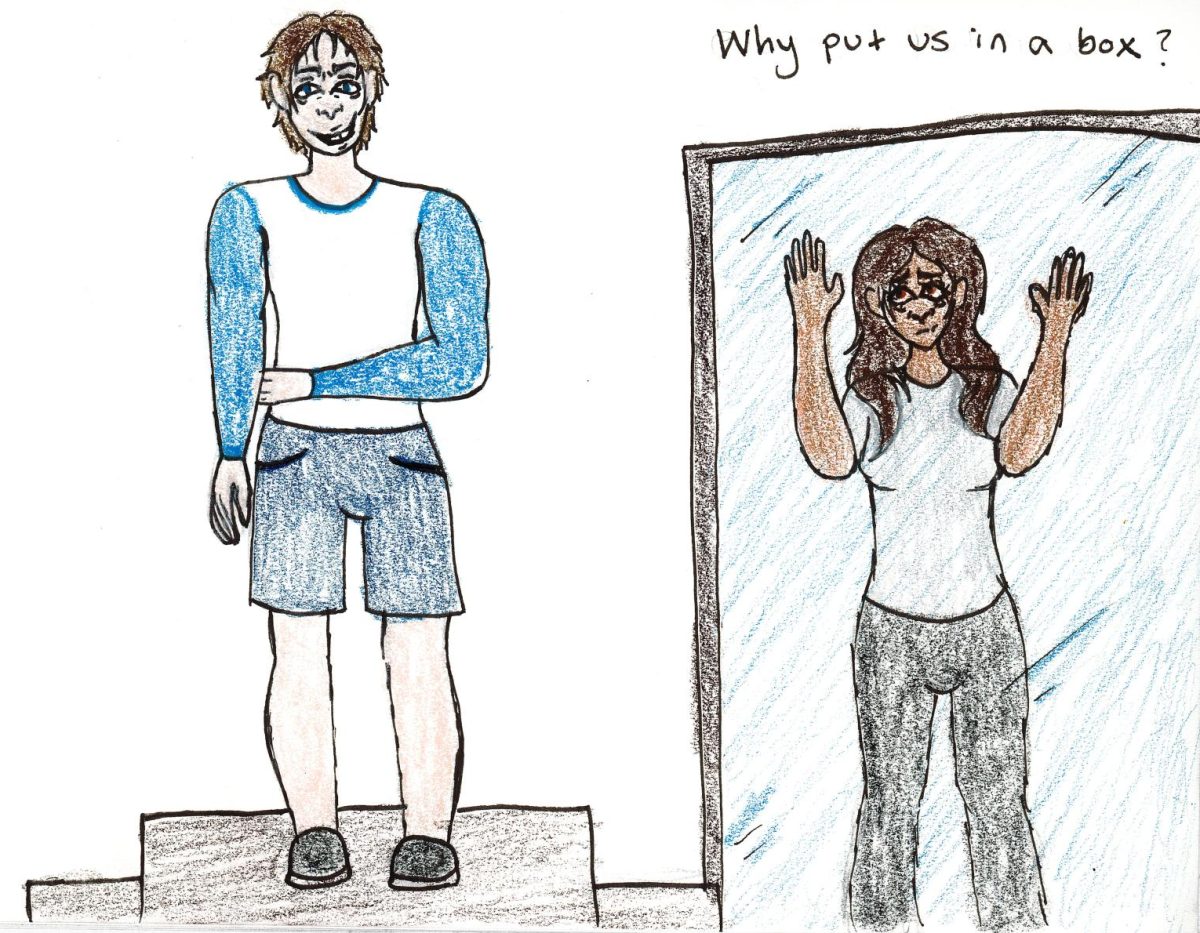Quarantine Chronicles: Teens Reflect on Mental Health Struggles and Resilience
COVID-19 took the nation by storm in January and the country was put under quarantine in March. For the past six months people across the country have been mostly quarantining in their homes, practicing social distancing and wearing mask to go to grocery stores and other essential places. Being in this situation can take a toll on a person’s mental health.
Having to be confined and not allowed to socialize normally can make a person feel isolated, distant and alone. Isolated, for the most part, and not being able to hang with friends can be especially tough for children and teens.
“Being able to go out and see my friends gave me a daily distraction and helped keep my mental health in check,” Ella Regan ’22 said. “Having this taken away from me for months on end, and being forced to see just my family every day, stressed me out. It made me feel empty and sad. It also caused me to lose a lot of my friends as well. Some of them did not have any social media or we just lost touch.”
To alleviate boredom, people found creative ways to stay motivated and busy during this tough time. Whether it was trying a new craft, like cooking or sewing, or learning a new skill, like playing an instrument, people discovered ways to keep their mental health under control.
“Things that people can do to stay motivated is pick up a hobby and make online friends,” Maryann Akhilomhen’22 said. “I know meeting new people can be scary, but I met a person on the internet, and we talk occasionally. I also went outside, whether it was to go on a walk or to just admire the view.”
Despite the chance to try new things, not all teens found creative ways to keep busy during quarantine. For those who live in low-income homes, it may not be easy to learn to play an instrument or entertain other costly hobbies. Being cooped up in a dysfunctional home can make coping with the pandemic difficult.
In certain cases, people may say that being in quarantine was the best thing that happened to their mental health, because they were free from stress and responsibility. But in other cases, extra stress and responsibility has put a strain on mental health.
“Quarantine had a really negative impact on my mental health due to fact that I could not see any of my friends or get the support that I needed,” Jonnai Jackson ’22 said. “Since I basically live alone, it was really hard for me to stay home and have little contact with anyone. This ended up causing anxiety and depression on a new scale for me.”
Now that some states in the U. S are being lifted from quarantine; it seems that people are ready to return to normal. Although people are excited, there are still precautions that everyone must take, such as washing hands, wearing a mask and social distancing. With these precautions in place, conversations about how this will impact socializing have started.
“Ironically, I think being quarantined positively impacted my social skills,” Rita Lapinski ’22 said. “I became a lot happier and I missed talking to people, so I was more eager than ever to socialize.”
There were a few bumps in the road during quarantine. Staying in the house can lead to boredom and being around the same people all day. Now that things are opening again, people have activities they are excited to continue.
“The hardest thing about quarantine is getting used to it,” Mohammed Sarmad ’22 said. “I am a very social and active person. I like to work out, play sports and just hang out with people. I am looking forward to being able to walk outside and not worry about wearing a mask or catching COVID. People took what we had before the pandemic for granted.”
Your donation will support the student journalists of Stevenson High School - MI. Your contribution will allow us to purchase equipment and cover our annual website hosting costs.







































